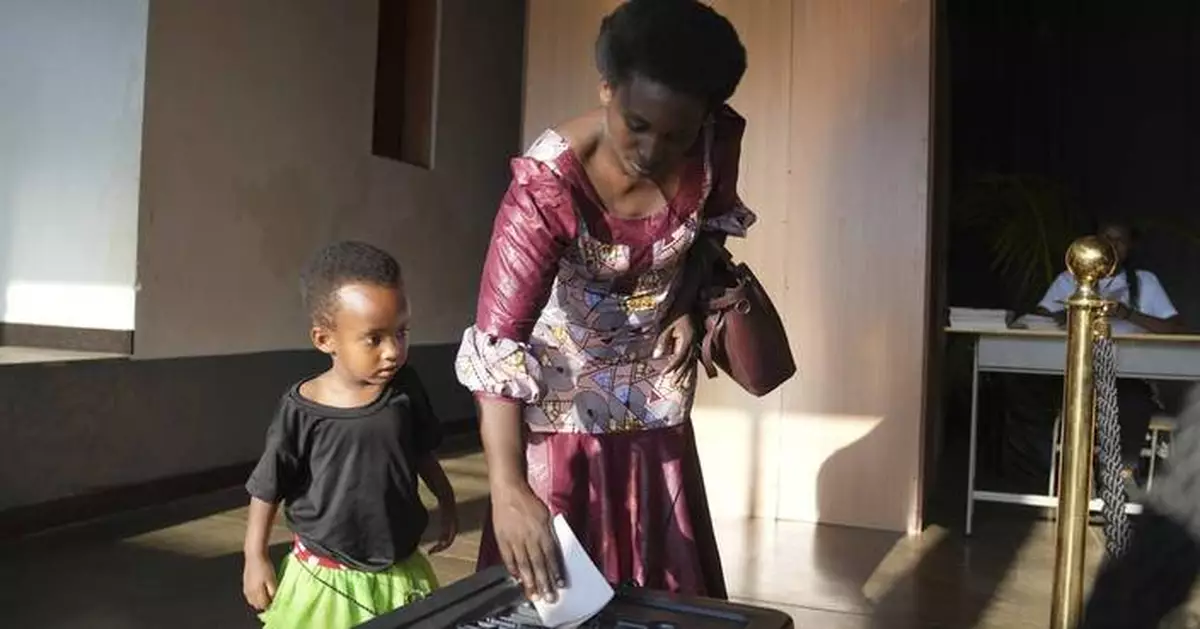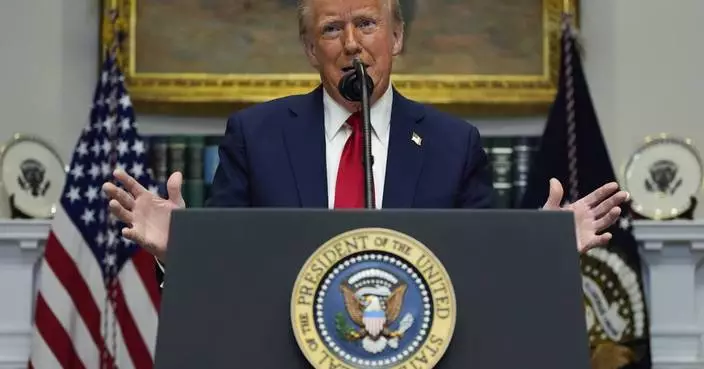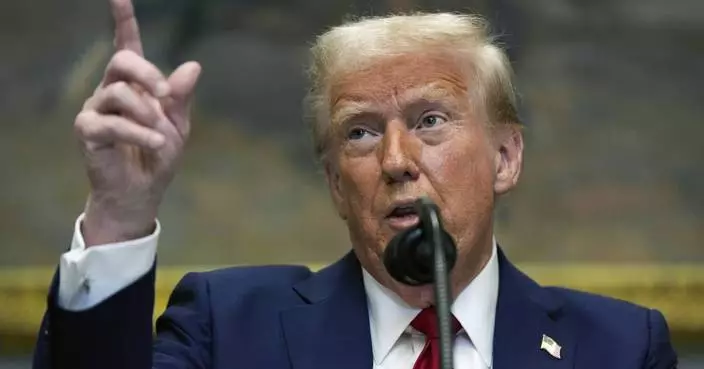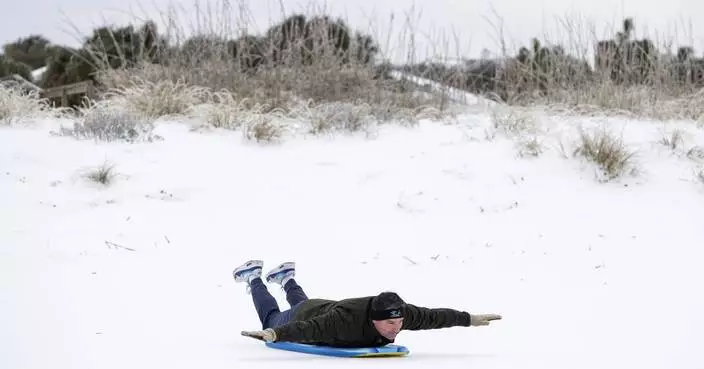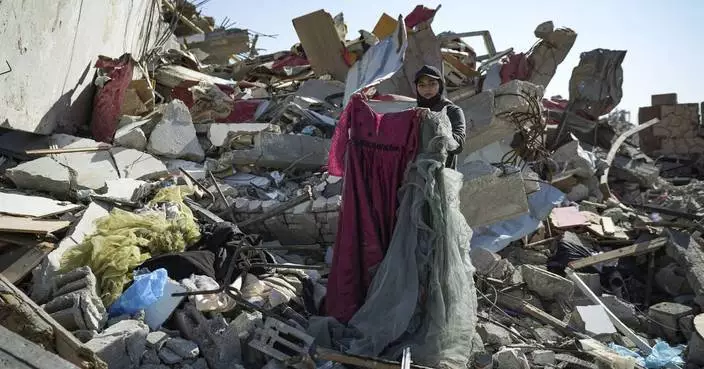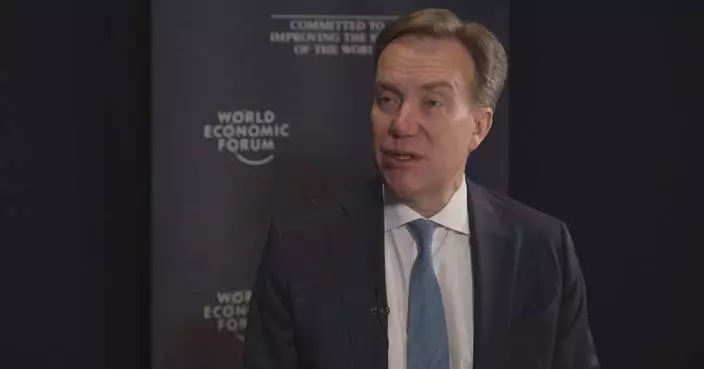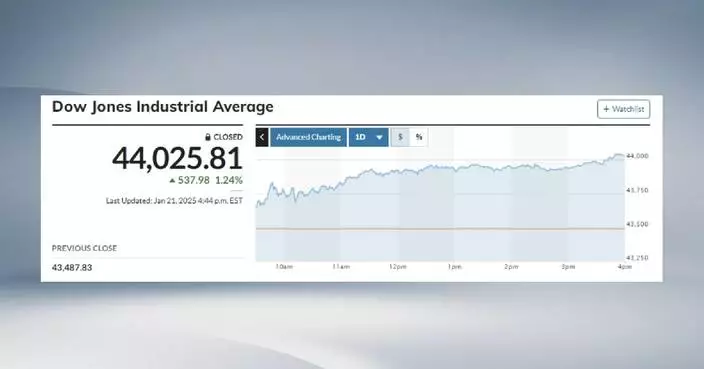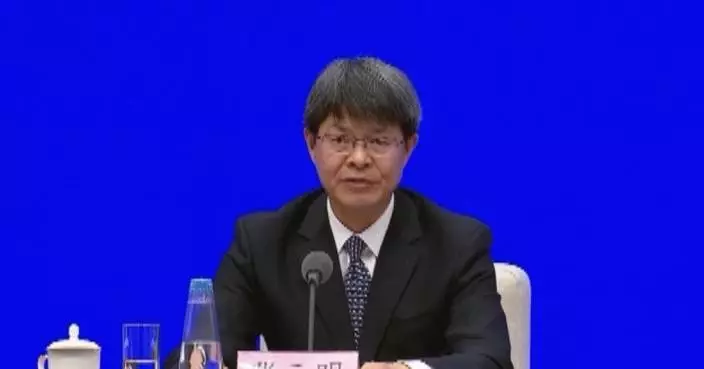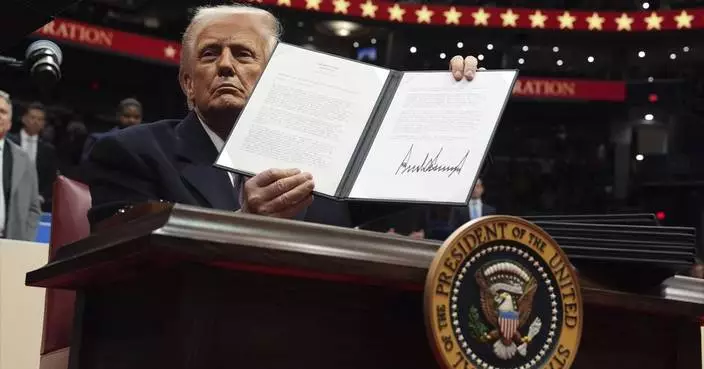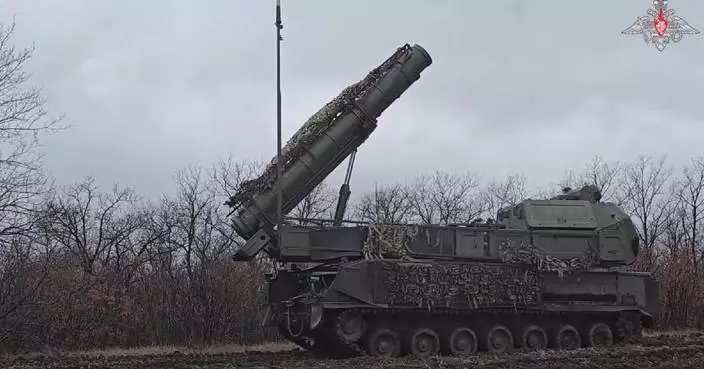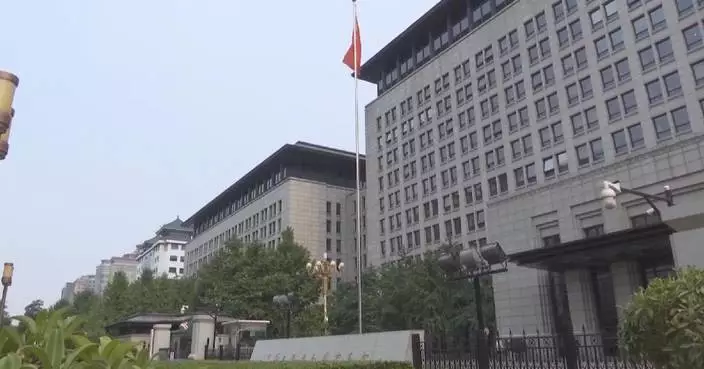KIGALI, Rwanda (AP) — Rwandans voted Monday in a presidential election that is expected to extend the rule of President Paul Kagame, who has held power since the end of the country's genocide in 1994.
The authoritarian leader, 66, is running virtually unopposed. Provisional results were expected later Monday.
Click to Gallery
Rwanda's President Paul Kagame, seen reflected in a window, arrives to cast his vote in a presidential election, in Kigali, Monday, July. 15, 2024. Rwandans are voting Monday in a presidential election that is expected to extend the long rule of Kagame, who has held power since 1994. (AP Photo/Brian Inganga)
Rwanda's President Paul Kagame, center, arrives to cast his vote in the presidential elections, in Kigali, Rwanda Monday, July. 15, 2024. Rwandans are voting Monday in a presidential election that is expected to extend the long rule of Kagame, who has held power since 1994. (AP Photo/Brian Inganga)
People line up to cast their vote in presidential election in Kigali, Rwanda Monday, July. 15, 2024. Rwandans are voting in an election that is expected to extend the 30-year rule of President Paul Kagame. (AP Photo/Brian Inganga)
People line up to cast their vote in a presidential election in Kigali, Rwanda Monday, July. 15, 2024. Rwandans are voting in an election that is expected to extend the 30-year rule of President Paul Kagame. (AP Photo/Brian Inganga)
People line up to cast their vote in a presidential election in Kigali, Rwanda Monday, July. 15, 2024. Rwandans are voting in an election that is expected to extend the 30-year rule of President Paul Kagame. (AP Photo/Brian Inganga)
A woman casts her vote in a presidential election in Kigali, Rwanda Monday, July. 15, 2024. Rwandans are voting in an election that is expected to extend the 30-year rule of President Paul Kagame. (AP Photo/Brian Inganga)
People line up to cast their vote in a presidential election in Kigali, Rwanda Monday, July. 15, 2024. Rwandans are voting in an election that is expected to extend the 30-year rule of President Paul Kagame. (AP Photo/Brian Inganga)
A voter holds a ballot paper with the names and pictures of the presidential candidates at a polling station in Kigali, Rwanda Monday, July. 15, 2024. Rwandans are voting in an election that is expected to extend the 30-year rule of President Paul Kagame. (AP Photo/Brian Inganga)
Rwanda's President Paul Kagame looks at his hands after casting his vote in a presidential election, in Kigali, Monday, July. 15, 2024. Rwandans are voting Monday in a presidential election that is expected to extend the long rule of Kagame, who has held power since 1994. (AP Photo/Brian Inganga)
Rwanda's President Paul Kagame casts his vote in a presidential election, in Kigali, Monday, July. 15, 2024. Rwandans are voting Monday in a presidential election that is expected to extend the long rule of Kagame, who has held power since 1994. (AP Photo/Brian Inganga)
A woman casts her vote in a presidential election in Kigali, Rwanda Monday, July. 15, 2024. Rwandans are voting in an election that is expected to extend the 30-year rule of President Paul Kagame. (AP Photo/Brian Inganga)
Kagame faced the same opponents — Frank Habineza of the Democratic Green Party of Rwanda and independent candidate Philippe Mpayimana — in the previous election in 2017 in which Kagame took nearly 99% of the vote.
His opponents struggled to attract supporters during campaigning, but Habineza told The Associated Press that his party “has improved, and we are confident we will perform very well this time.”
There were long lines at some polling stations in the capital, Kigali. Election authorities said 9.5 million Rwandans were registered to vote in the country's population of 14 million.
“This is going to be my first time to vote. I am voting for President Kagame because I have never seen a leader like him before,” said passenger motorcyclist Jean Claude Nkurunziza.
Kagame has led the East African country since he seized power as the head of rebels who took control of the government and ended the genocide in 1994. He was vice president and de facto leader from 1994 to 2000, when he became president.
He has been condemned by many as a violent authoritarian but praised by others for presiding over impressive growth in the three decades since the genocide.
Kagame is among African leaders who have prolonged their rule by pursuing changes to term limits. In 2015, Rwandans in a referendum voted to lift a two-term limit.
Now Kagame could stay in power until 2034.
On Saturday, he told journalists that his mandate comes from the people.
"The ruling party and Rwandans have been asking me to stand for another mandate," he said. ”At a personal level, I can comfortably go home and rest.”
Rwanda’s election takes place amid heightened fears of insecurity in Africa’s Great Lakes region. Rebels known as M23 are fighting Congolese forces in a remote area of neighboring eastern Congo.
Between 3,000 and 4,000 Rwandan forces are fighting alongside M23, United Nations experts said in a report circulated last week. The U.S. government has described the group as being backed by Rwanda.
Rwanda accuses Congo’s military of recruiting fighters who were among the perpetrators of the genocide.
Rights groups continue to raise alarm over harsh restrictions on human rights, including freedom of association, in Rwanda.
Amnesty International in a recent statement expressed concern over “threats, arbitrary detention, prosecution on trumped-up charges, killings and enforced disappearances” targeting the political opposition. It said the suppression of dissenting voices, including among civic groups and the media, “has a chilling effect and limits the space for debate for people of Rwanda.”
Follow AP's Africa coverage at https://apnews.com/hub/africa
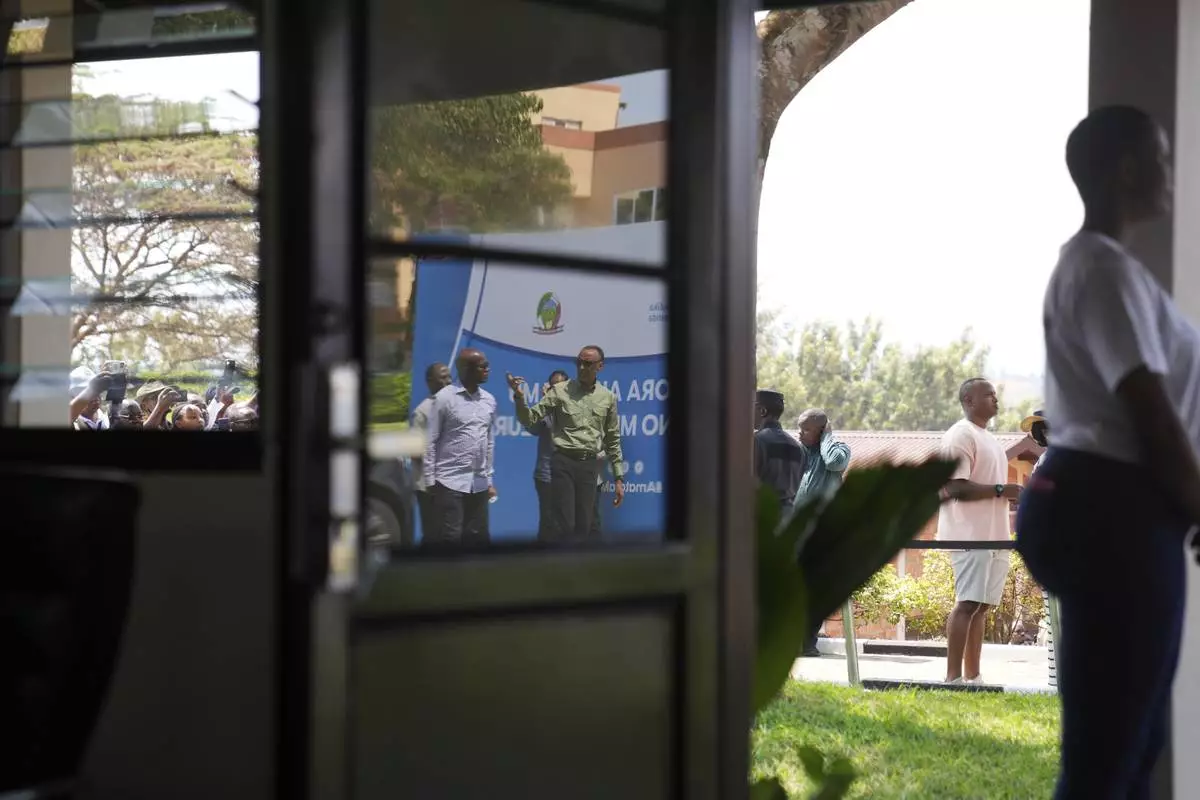
Rwanda's President Paul Kagame, seen reflected in a window, arrives to cast his vote in a presidential election, in Kigali, Monday, July. 15, 2024. Rwandans are voting Monday in a presidential election that is expected to extend the long rule of Kagame, who has held power since 1994. (AP Photo/Brian Inganga)
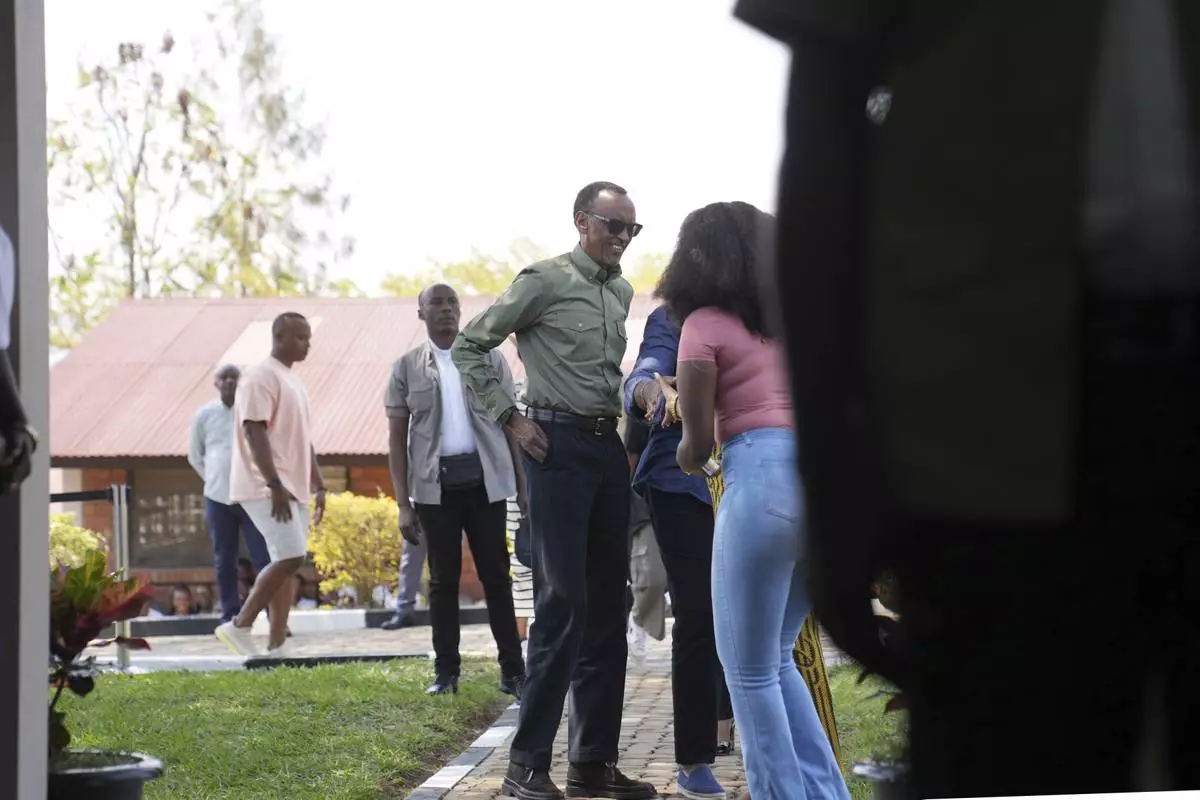
Rwanda's President Paul Kagame, center, arrives to cast his vote in the presidential elections, in Kigali, Rwanda Monday, July. 15, 2024. Rwandans are voting Monday in a presidential election that is expected to extend the long rule of Kagame, who has held power since 1994. (AP Photo/Brian Inganga)
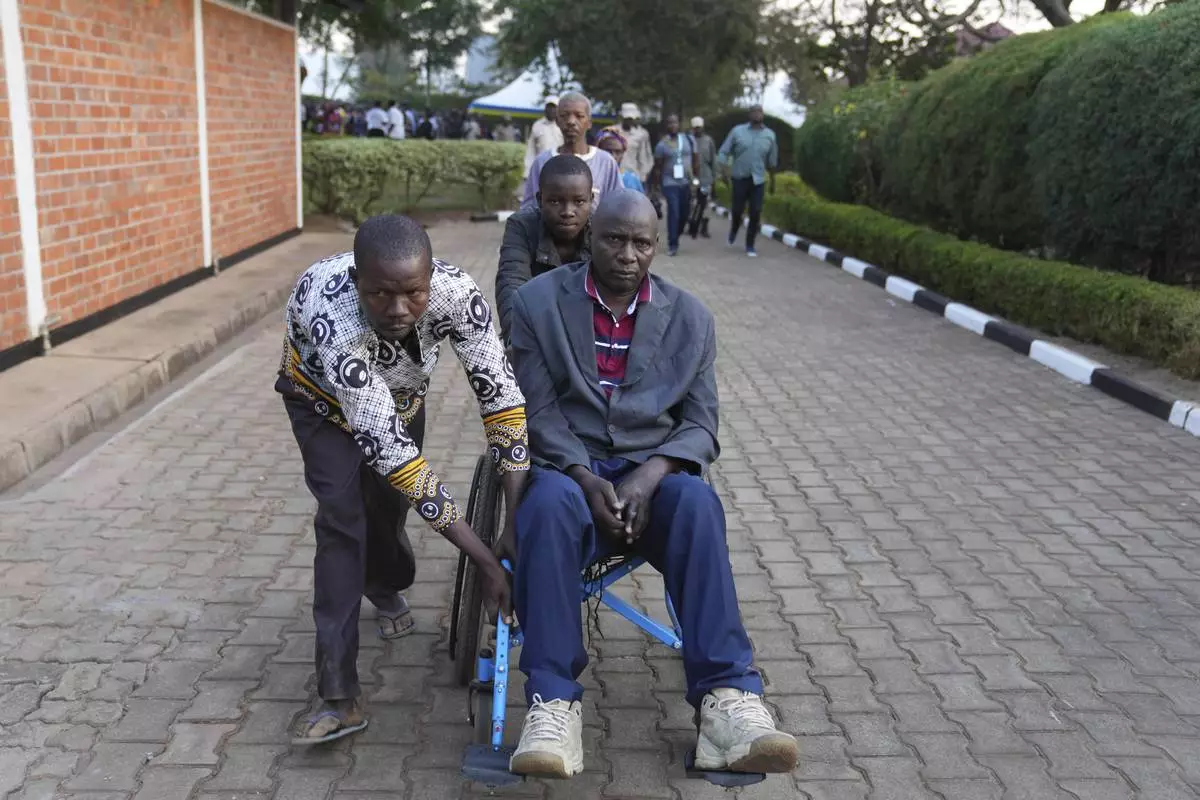
People line up to cast their vote in presidential election in Kigali, Rwanda Monday, July. 15, 2024. Rwandans are voting in an election that is expected to extend the 30-year rule of President Paul Kagame. (AP Photo/Brian Inganga)
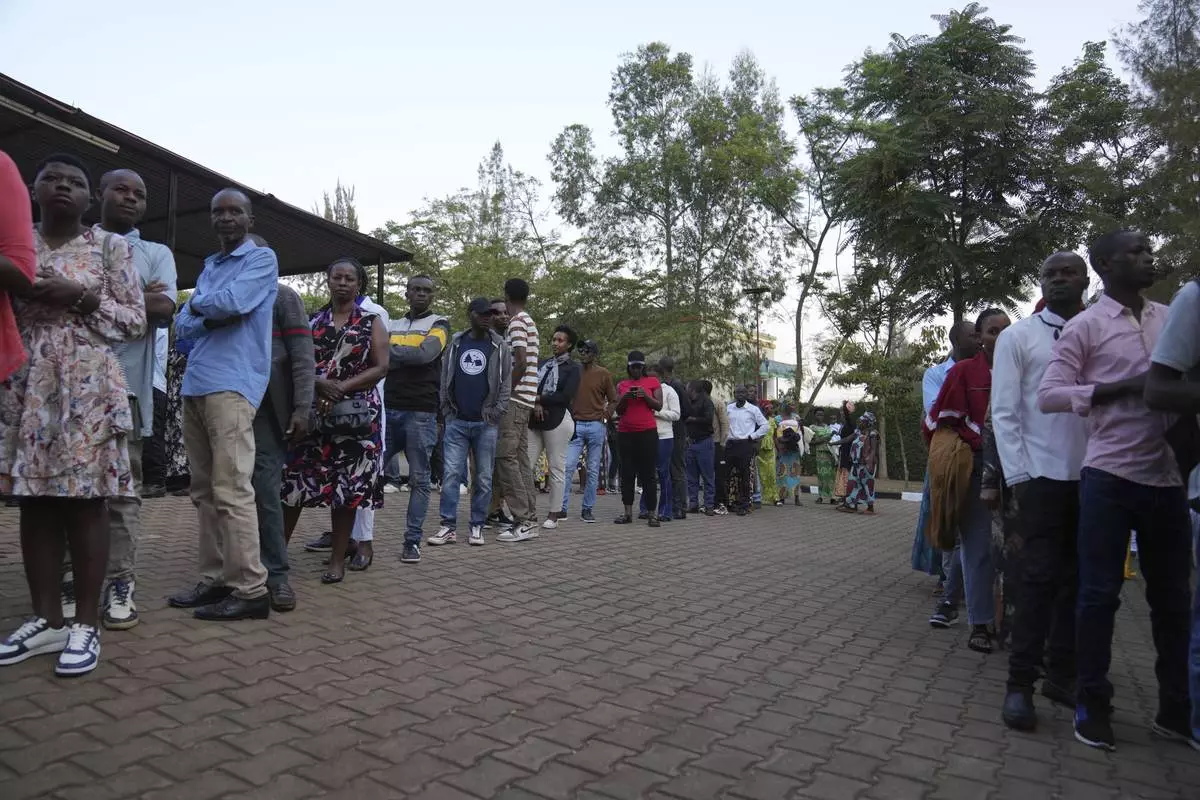
People line up to cast their vote in a presidential election in Kigali, Rwanda Monday, July. 15, 2024. Rwandans are voting in an election that is expected to extend the 30-year rule of President Paul Kagame. (AP Photo/Brian Inganga)
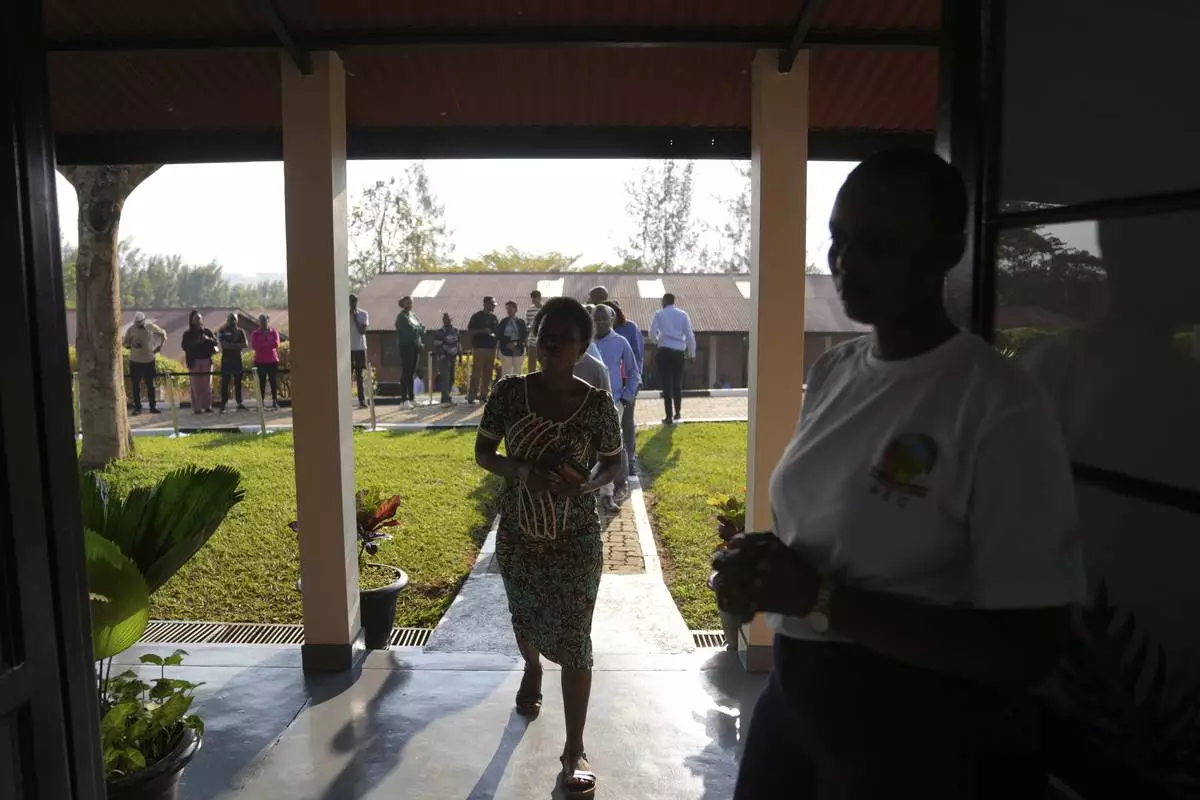
People line up to cast their vote in a presidential election in Kigali, Rwanda Monday, July. 15, 2024. Rwandans are voting in an election that is expected to extend the 30-year rule of President Paul Kagame. (AP Photo/Brian Inganga)
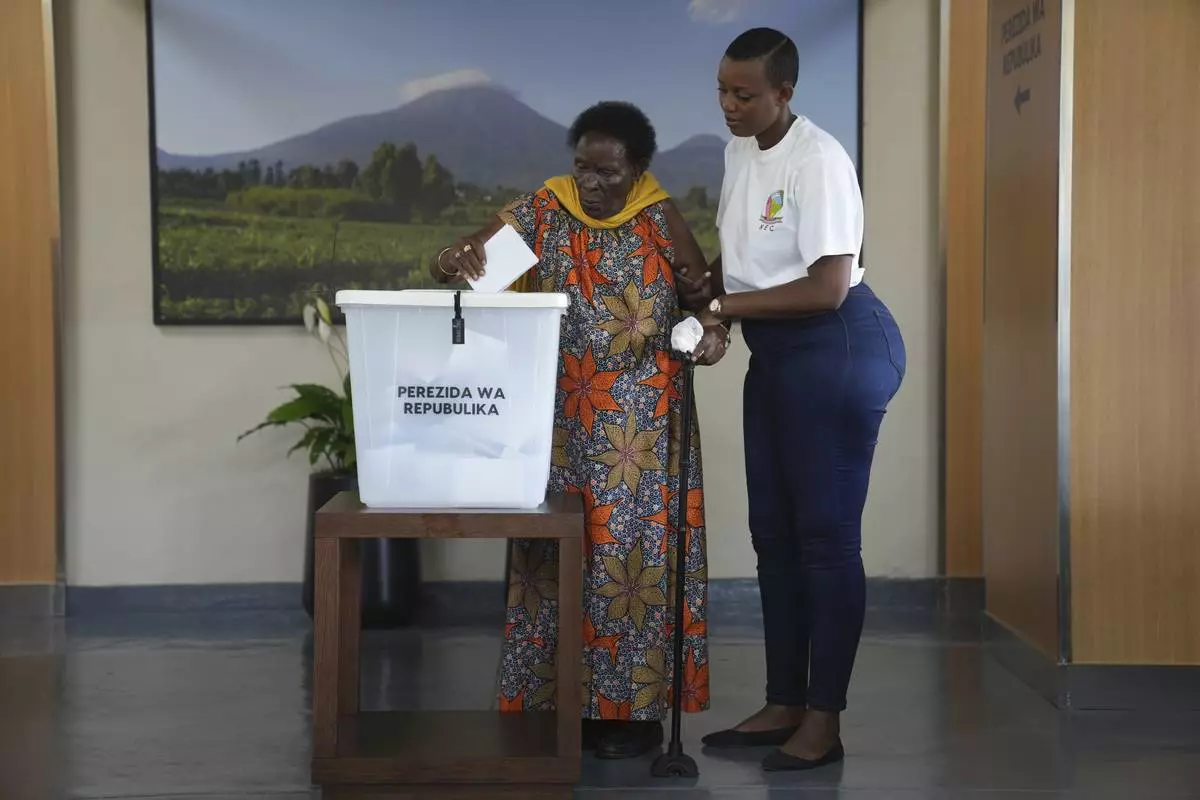
A woman casts her vote in a presidential election in Kigali, Rwanda Monday, July. 15, 2024. Rwandans are voting in an election that is expected to extend the 30-year rule of President Paul Kagame. (AP Photo/Brian Inganga)
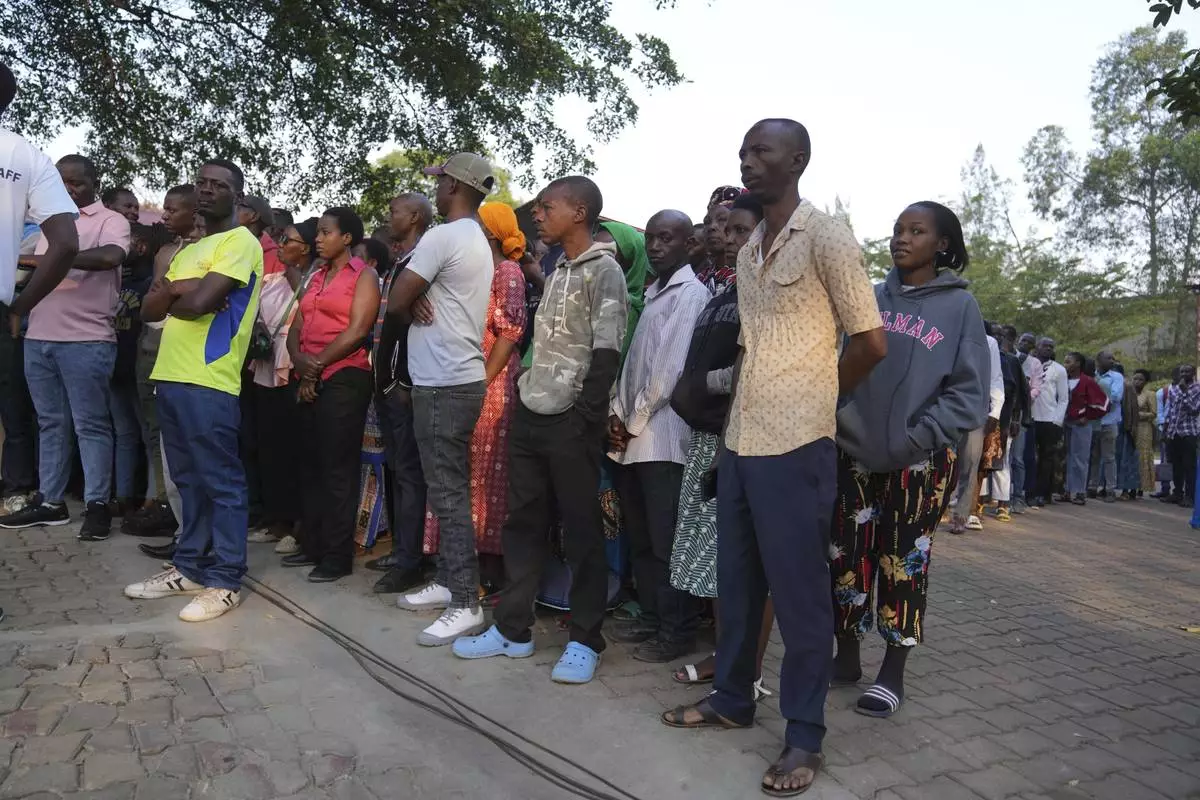
People line up to cast their vote in a presidential election in Kigali, Rwanda Monday, July. 15, 2024. Rwandans are voting in an election that is expected to extend the 30-year rule of President Paul Kagame. (AP Photo/Brian Inganga)
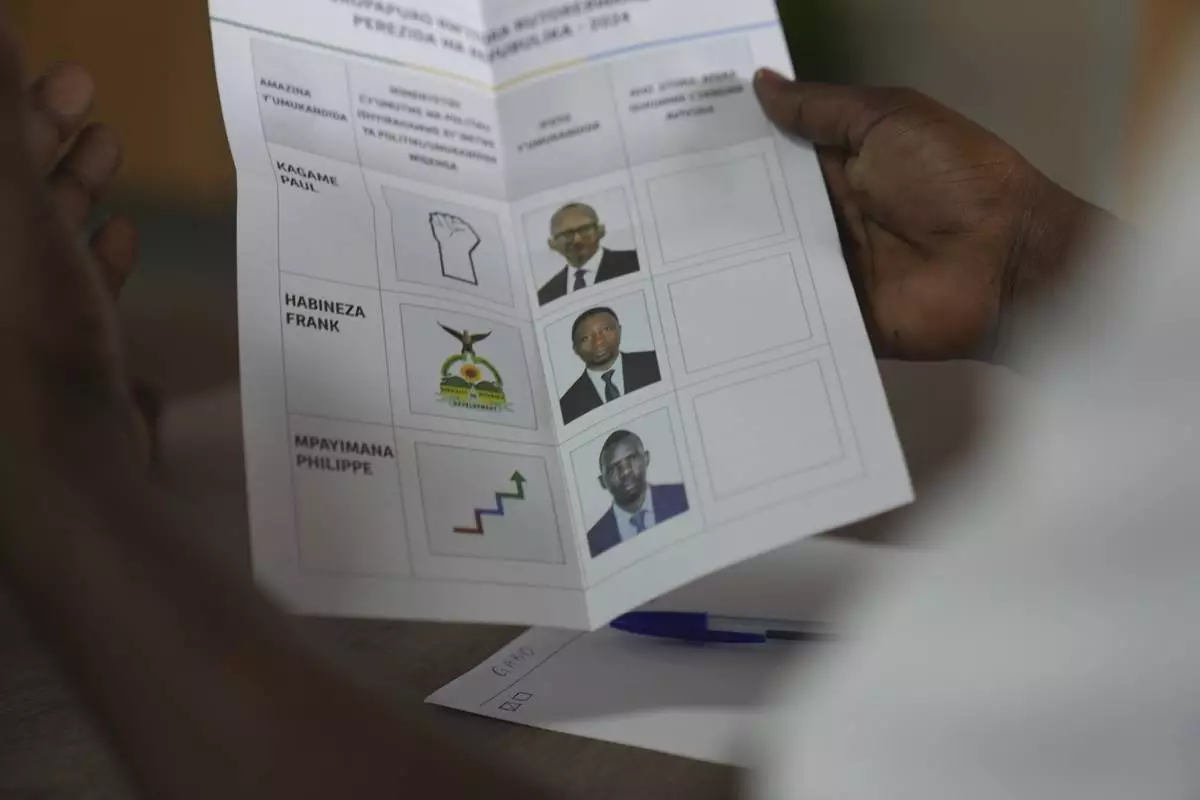
A voter holds a ballot paper with the names and pictures of the presidential candidates at a polling station in Kigali, Rwanda Monday, July. 15, 2024. Rwandans are voting in an election that is expected to extend the 30-year rule of President Paul Kagame. (AP Photo/Brian Inganga)
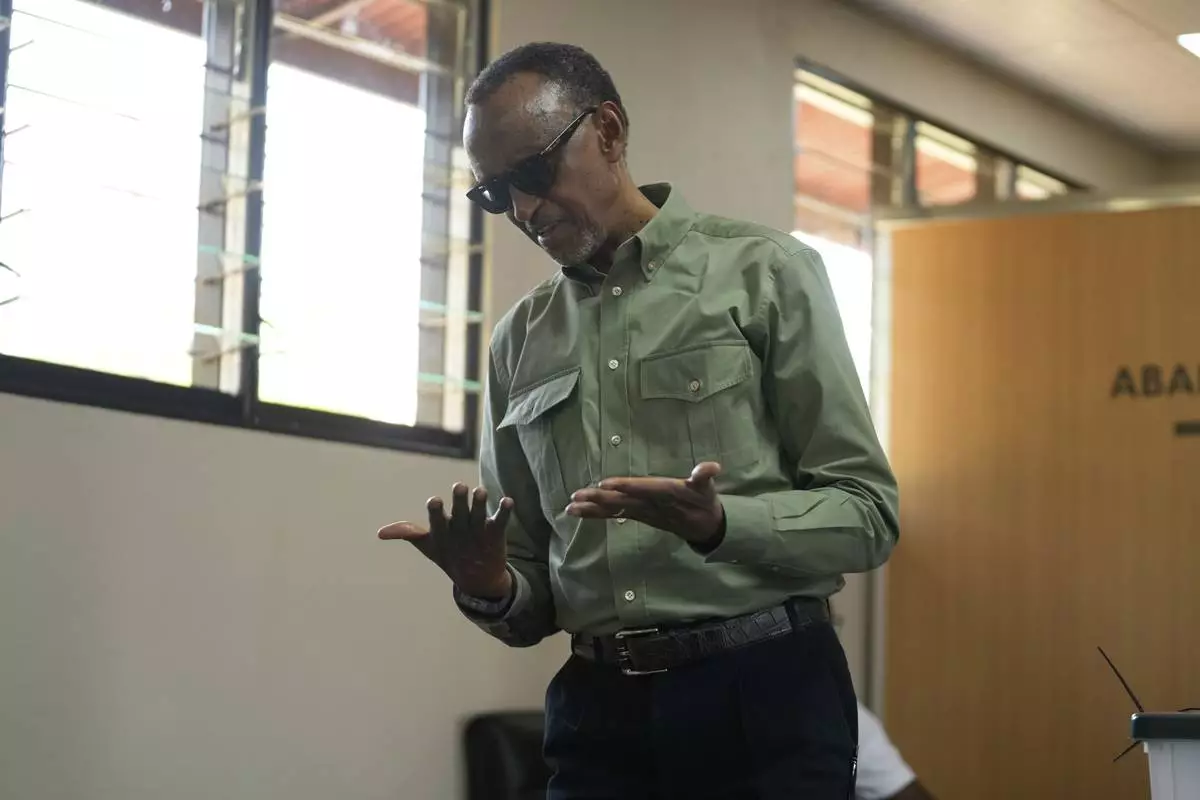
Rwanda's President Paul Kagame looks at his hands after casting his vote in a presidential election, in Kigali, Monday, July. 15, 2024. Rwandans are voting Monday in a presidential election that is expected to extend the long rule of Kagame, who has held power since 1994. (AP Photo/Brian Inganga)
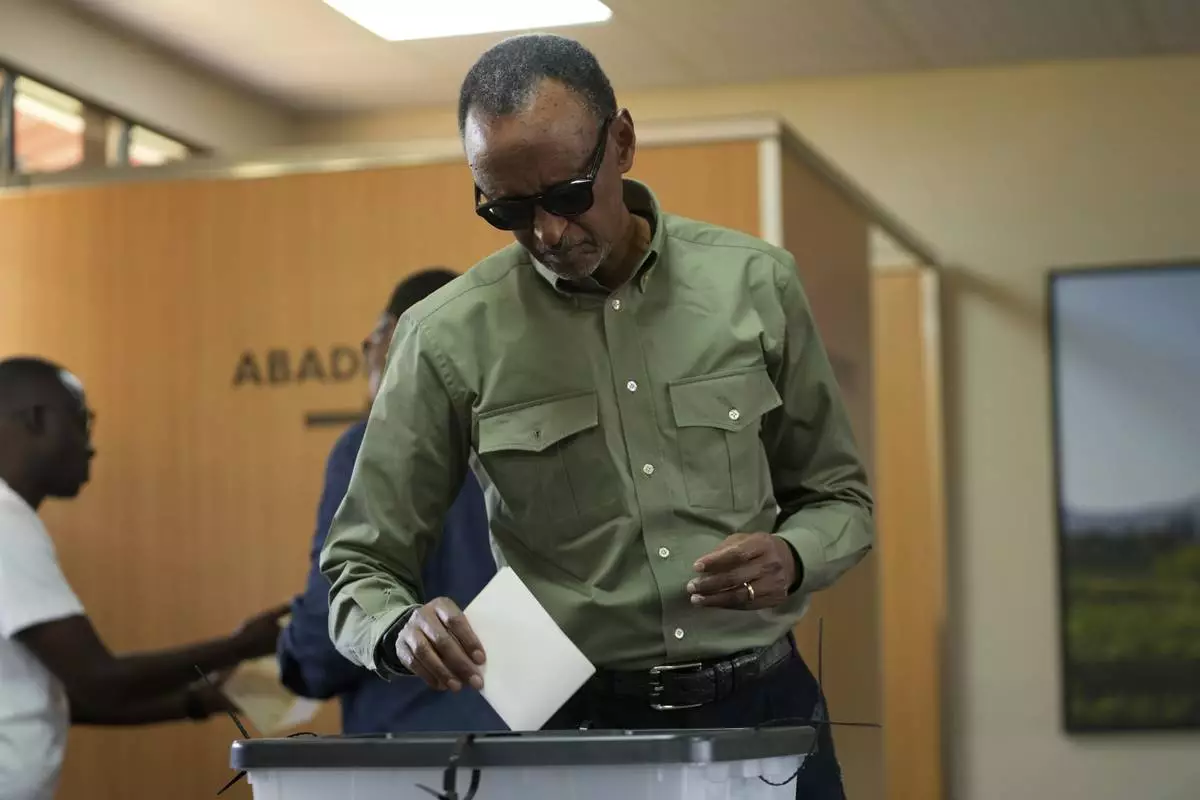
Rwanda's President Paul Kagame casts his vote in a presidential election, in Kigali, Monday, July. 15, 2024. Rwandans are voting Monday in a presidential election that is expected to extend the long rule of Kagame, who has held power since 1994. (AP Photo/Brian Inganga)
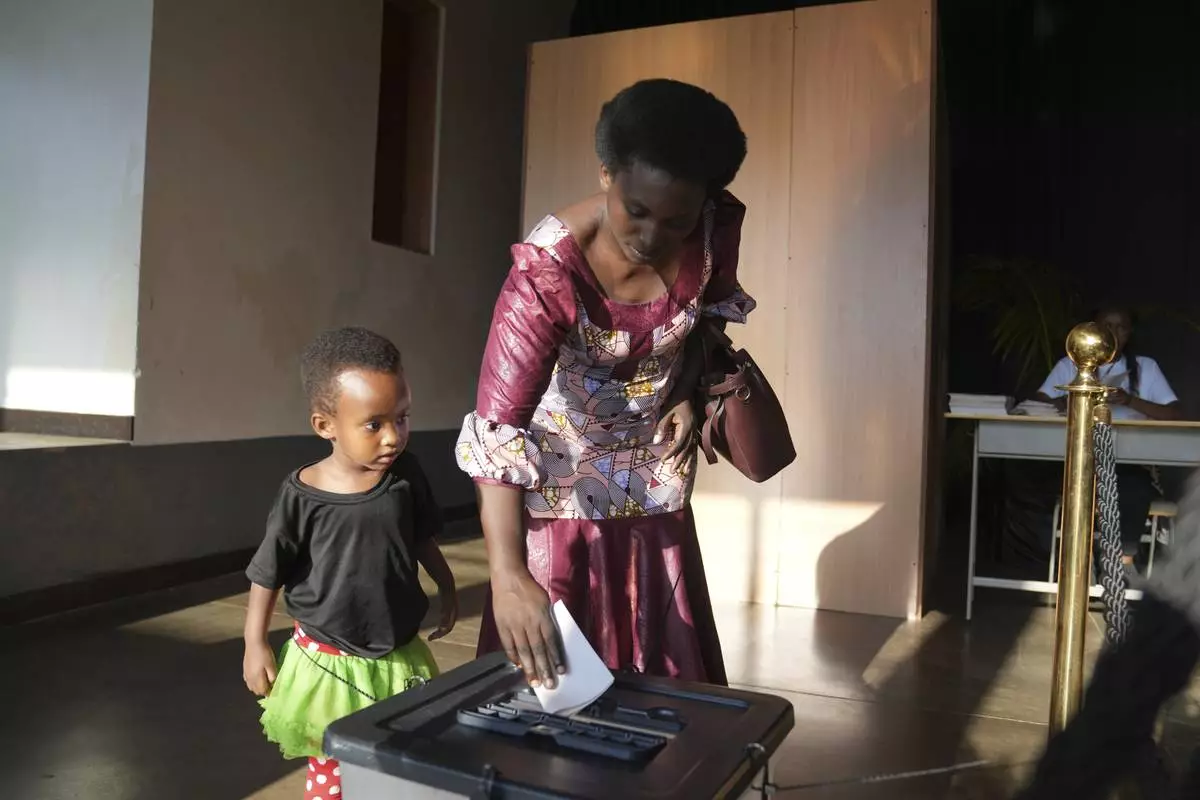
A woman casts her vote in a presidential election in Kigali, Rwanda Monday, July. 15, 2024. Rwandans are voting in an election that is expected to extend the 30-year rule of President Paul Kagame. (AP Photo/Brian Inganga)
WASHINGTON (AP) — The Pentagon will begin deploying as many as 1,500 active duty troops to help secure the southern border in the coming days, U.S. officials said Wednesday, putting in motion plans President Donald Trump laid out in executive orders shortly after he took office to crack down on immigration.
Acting Defense Secretary Robert Salesses was expected to sign the deployment orders on Wednesday, but it wasn't yet clear which troops or units will go, and the total could fluctuate. It remains to be seen if they will end up doing law enforcement, which would put American troops in a dramatically different role for the first time in decades.
The officials spoke on condition of anonymity because the announcement has not yet been made.
The active duty forces would join the roughly 2,500 U.S. National Guard and Reserve forces already there. There are currently no active duty troops working along the border.
The troops are expected to be used to support border patrol agents, with logistics, transportation and construction of barriers. They have done similar duties in the past, when both Trump and former President Joe Biden sent active duty troops to the border.
Troops are prohibited by law from doing law enforcement duties under the Posse Comitatus Act, but that may change. Trump has directed through executive order that the incoming secretary of defense and incoming homeland security chief report back within 90 days if they think an 1807 law called the Insurrection Act should be invoked. That would allow those troops to be used in civilian law enforcement on U.S. soil.
The last time the act was invoked was in 1992 during rioting in Los Angeles in protest of the acquittal of four police officers charged with beating Rodney King.
The widely expected deployment, coming in Trump’s first week in office, was an early step in his long-touted plan to expand the use of the military along the border. In one of his first orders on Monday, Trump directed the defense secretary to come up with a plan to “seal the borders” and repel “unlawful mass migration.”
On Tuesday, just as Trump fired the Coast Guard commandant, Adm. Linda Fagan, the service announced it was surging more cutter ships, aircraft and personnel to the “Gulf of America” — a nod to the president’s directive to rename the Gulf of Mexico.
Trump said during his inaugural address on Monday that “I will declare a national emergency at our southern border. All illegal entry will immediately be halted, and we will begin the process of returning millions and millions of criminal aliens back to the places in which they came.”
Military personnel have been sent to the border almost continuously since the 1990s to help address migration. drug trafficking and transnational crime.
In executive orders signed Monday, Trump suggested the military would help the Department of Homeland Security with “detention space, transportation (including aircraft), and other logistics services.”
In his first term, Trump ordered active duty troops to the border in response to a caravan of migrants slowly making its way through Mexico toward the United States in 2018. More than 7,000 active duty troops were sent to Texas, Arizona and California, including military police, an assault helicopter battalion, various communications, medical and headquarters units, combat engineers, planners and public affairs units.
At the time, the Pentagon was adamant that active duty troops would not do law enforcement. So they spent much of their time transporting border patrol agents to and along the border, helping them erect additional vehicle barriers and fencing along the border, assisting them with communications and providing some security for border agent camps.
The military also provided border patrol agents with medical care, pre-packaged meals and temporary housing.
It's also not yet clear if the Trump administration will order the military to use bases to house detained migrants.
Bases previously have been used for that purpose, and after the 2021 fall of Kabul to the Taliban, they were used to host thousands of Afghan evacuees. The facilities struggled to support the influx.
In 2018, then-Defense Secretary Jim Mattis ordered Goodfellow Air Force Base in San Angelo, Texas, to prepare to house as many as 20,000 unaccompanied migrant children, but the additional space ultimately wasn’t needed and Goodfellow was determined not to have the infrastructure necessary to support the surge.
In March 2021, the Biden administration greenlighted using property at Fort Bliss, Texas, for a detention facility to provide beds for up to 10,000 unaccompanied migrant children as border crossings increased from Mexico.
The facility, operated by DHS, was quickly overrun, with far too few case managers for the thousands of children that arrived, exposure to extreme weather and dust and unsanitary conditions, a 2022 inspector general report found.
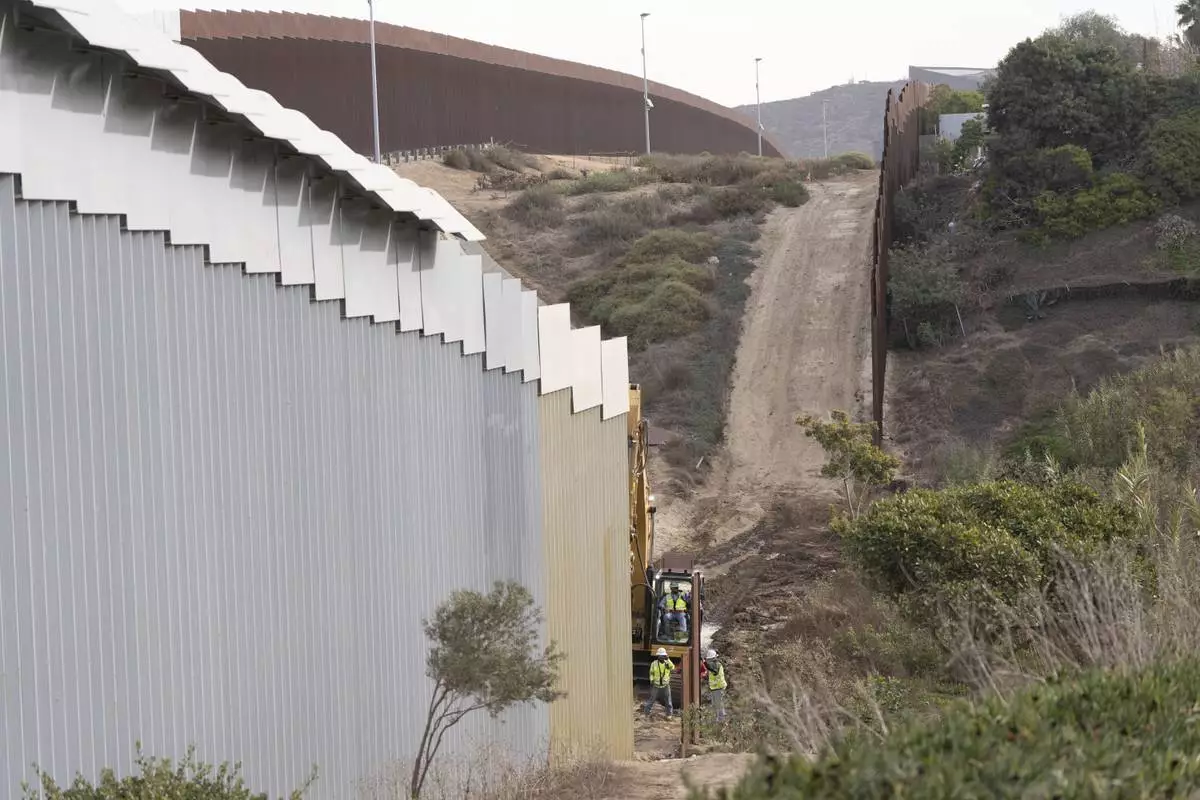
Construction crews replace sections of one of two border walls separating Mexico from the United States, Wednesday, Jan. 22, 2025, in Tijuana, Mexico. (AP Photo/Gregory Bull)
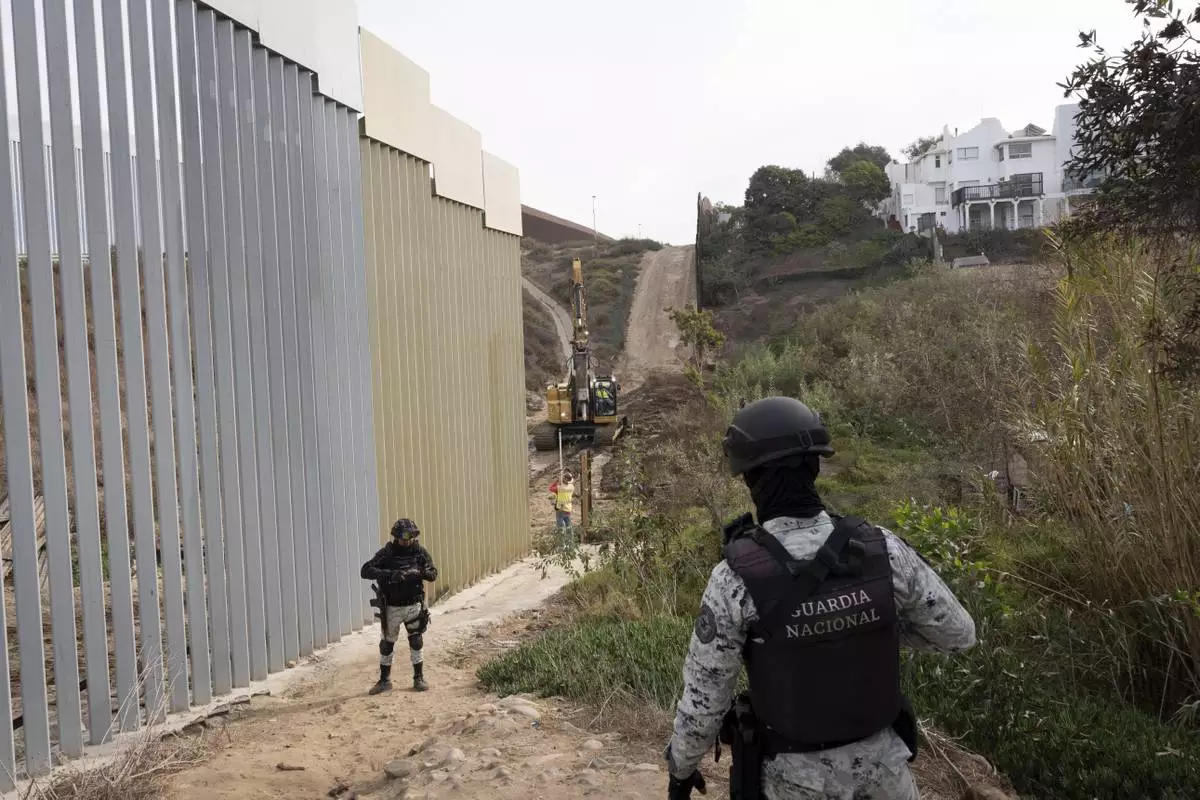
Members of the Mexican National Guard patrol as construction crews replace sections of one of two border walls separating Mexico from the United States, Wednesday, Jan. 22, 2025, in Tijuana, Mexico. (AP Photo/Gregory Bull)
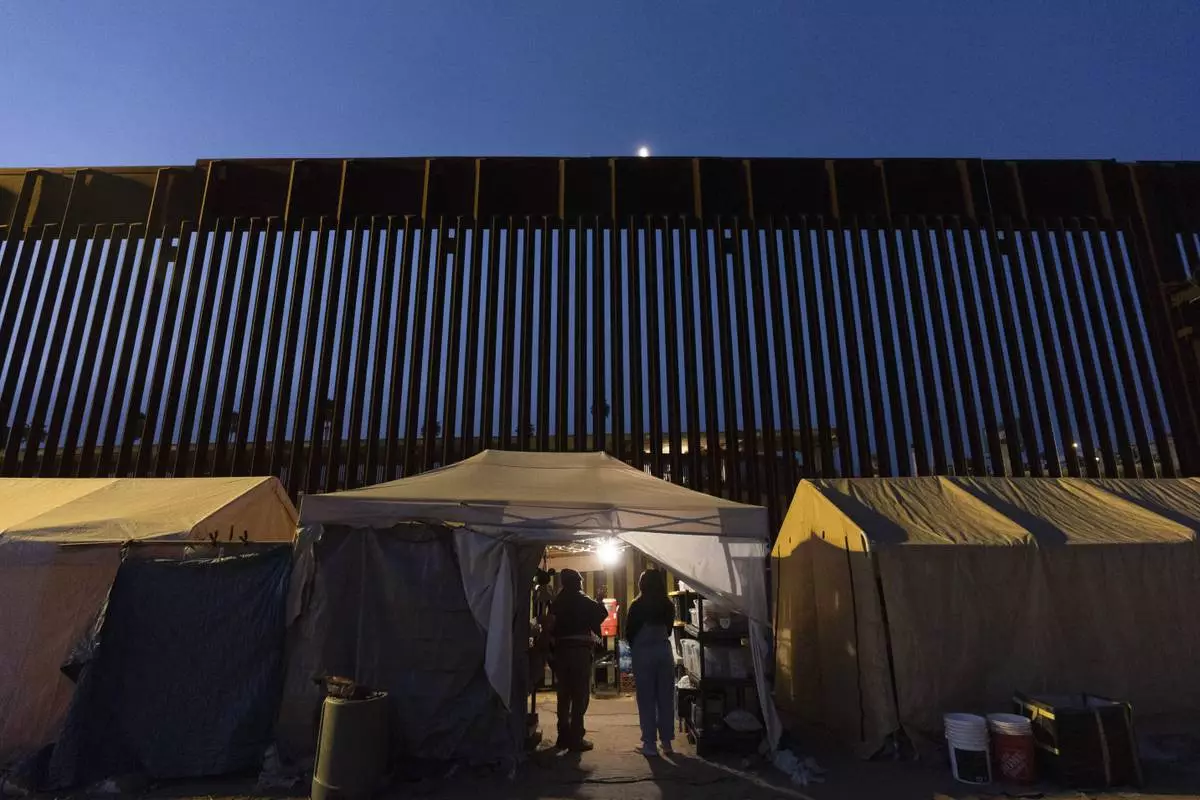
Volunteers talk in a tent along a border wall separating Mexico from the United States Wednesday, Jan. 22, 2025, in San Diego. (AP Photo/Gregory Bull)
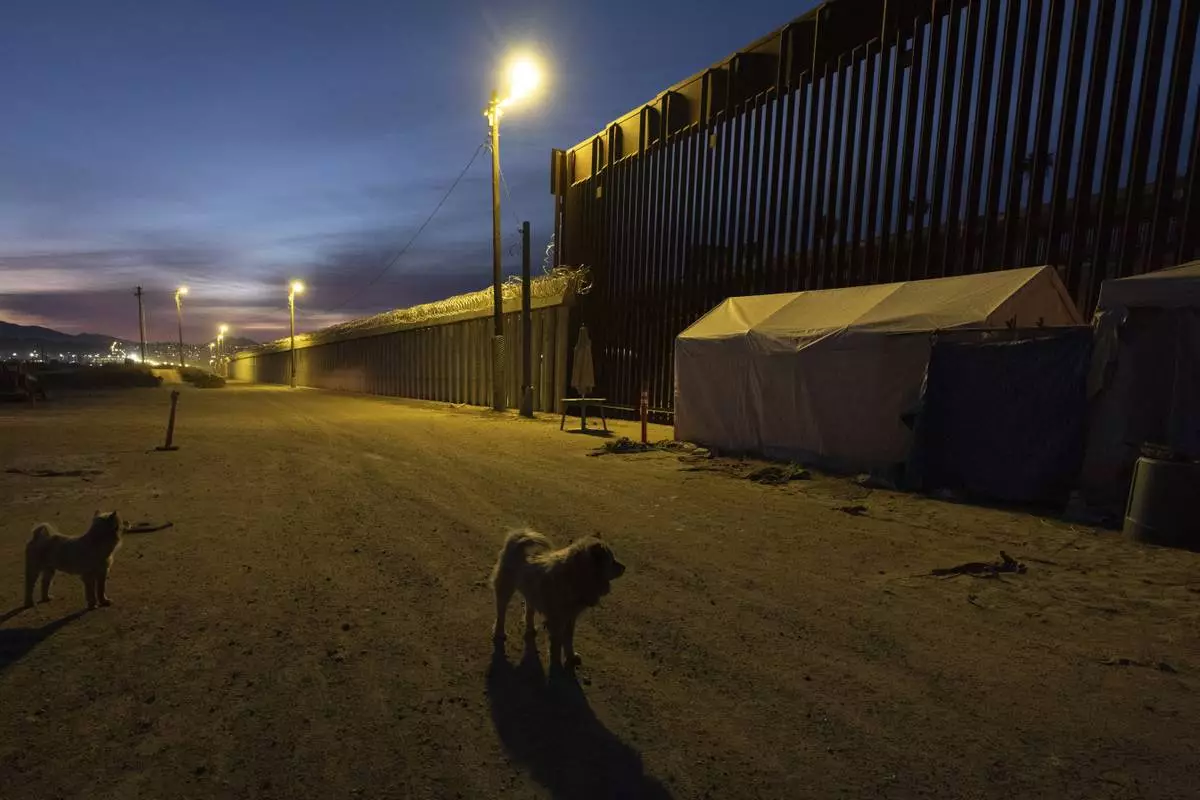
Dogs are near a border wall separating Mexico from the United States Wednesday, Jan. 22, 2025, in San Diego. (AP Photo/Gregory Bull)













